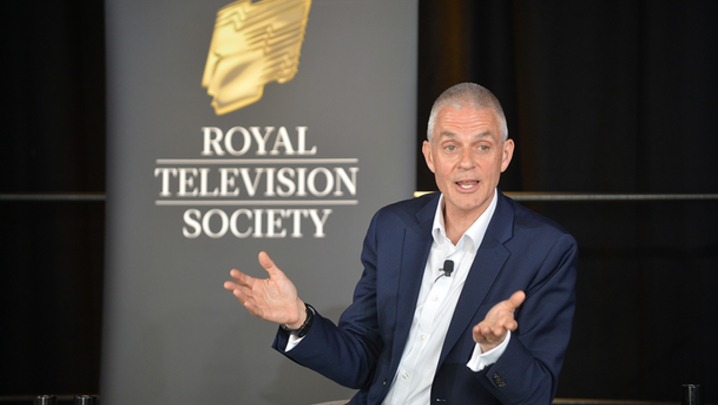A new history of the BBC during the Thatcher era by its official historian has it all. But Maggie Brown wonders if the approach lacks genuine focus
Writers of contemporary media history need to be brave. They also, of course, want to be read. Professor Jean Seaton, the official BBC historian, has a crisp style, a fine grasp of the period 1974-87 and has authored an absorbing book, with the power to annoy and stimulate debate.
As the title, Pinkoes and Traitors (taken from the Dear Bill letters of Private Eye), announces, the prose is leavened by light touches.
She describes the BBC alighting on the diplomatic Ian Trethowan as a potential director-general (he served 1977-82) this way: "Treating him like a queen bee grub, the BBC began to feed him royal jelly", consciously expanding his experience.
All of this is a far cry from Lord (Asa) Briggs, whom Seaton follows. He wrote voluminous doorstopper histories.
She compresses her account of what were seriously dark years into 384 pages: 13 chapters, with conclusions, from "Mrs Thatcher and the BBC: the Conservative Athene" to "Endgame", about the dispatch of Alasdair Milne.
Milne's son Seumas has attacked her for writing journo history. But this account is the distillation of scores of interviews, access to the fabled closed oral BBC archive (which tapes leading figures on departure) and state papers. All history bears personal imprints.
The question is: do you trust her overarching framework? This is that the BBC, corporately, floundered repeatedly during the 1970s and 1980s and failed to address the big issues of the day, dominated as they were by the rise of Thatcherite market forces.
First, it tried and failed to establish decent licence-fee settlements with the Callaghan Government, which secretly toyed with ending the licence fee, and then imposed three short-term settlements during the period 1977-79 (the so-called "noose"), which forced the corporation into debt.
In a decade of social turmoil that included the 1970 Equal Pay Act, Seaton details a hilarious 1973 "Limitations" document to the BBC's Board of Management that gave reasons not to promote women. Just 81 of the 1,434 managers were female in 1973. Not until Monica Sims' 1984 report was the BBC's disregard for women confronted. The first ethnic-minority graduate trainee was employed in 1979.
The 1980s brought a near-disastrous clash with Margaret Thatcher and the more hawkish members of her Cabinet. "[The BBC] was like a rabbit caught in the eye of a ferret," writes Seaton.
This was a period of sectarian war in Northern Ireland, spilling into terrorism in England, rising unemployment, and the Falklands war, which cemented Thatcher's power.
The Prime Minister then moved on to question the licence fee, via the Peacock Committee in 1985, but was thwarted on sound economic grounds.
Seaton credits economists Andrew Ehrenberg and Paddy Barwise of the London Business School and their sophisticated independent research for saving the BBC's funding model.
There are problems with Seaton's approach. It is a bit scattergun. There is an extensive chapter on the ambitious 13-part Life on Earth project, which enabled the Bristol-based Natural History Unit to come into its own.
Another chapter dissects the wedding of the Prince of Wales and Lady Diana Spencer, noting that "the age of deferential royal coverage [was] on the wane", and declaring the media as on the "cusp of a febrile royal news story".
But there is scant account of sport, or the nations and regions. Drama experienced a golden period – Milne is credited with encouraging Dennis Potter's Pennies from Heaven after refusing to screen his Brimstone and Treacle(the Devil rapes a disabled girl, which made him feel sick) – but radical figures such as Tony Garnett are not interviewed.
Sexual abuse and Jimmy Savile are dealt with briefly: Seaton found no trace in the BBC's files of anxiety about him, nor referrals upwards. Uncouthness acted as a cloak.
There is some detail about men groping women and an unnamed executive prone to spanking younger females. This led to comfy exile in a BBC America post. BBC Chairman Lord Howard (1980-83) is exposed as a "dirty old man".
For me, the final chapter, about the sacking of Milne, which was a seismic event, is disappointingly succinct.
Seaton's view that Milne was the wrong person for the DG post rings absolutely true. In 1986, I witnessed him being told that the BBC had a new chairman (following the death of Stuart Young) as he sat on a public platform at the BFI. He fled, saying he'd never heard of Marmaduke Hussey.
And there is an important discovery: Thatcher consulted Rupert Murdoch over the appointment of Hussey.
Seaton points to the failure of Milne's BBC to keep communications open with the Thatcher Government. It had allies, she writes, but barely mustered them.
Following the 1979 election, then-Home Secretary Willie Whitelaw gave the corporation amazing security in the form of a 15-year Charter.
Another Conservative Home Secretary, Douglas Hurd, and senior civil servants subsequently battled in different ways to protect the BBC.
Crucial to this history is the decision by the powerful Patricia Hodgson, former BBC Secretary and now Chair of Ofcom, to be interviewed as the key witness in the plot to remove Milne.
She reveals her annual dinners with Thatcher, which began in 1976, when Thatcher was Leader of the Opposition. When Milne became Director-General in 1982, he stopped these dinners.
Central to his fall is the issue of whether the 1984 Panorama programme Maggie's Militant Tendency was flawed. It examined the allegedly extremist views of three right-wing Conservative MPs (Harvey Proctor, Neil Hamilton and Gerald Howarth).
Hodgson's view was that Milne and his Assistant Director-General, Alan Protheroe, were consciously misdirecting the governors, "trying to price the MPs out of the market" so that they would be forced to drop their libel case.
At the heart of the programme was an allegation of anti-Semitism in the Conservative Party. Young, the first Jewish BBC chairman, "was convinced that the general argument was correct but did not appreciate problems with how the story was told", writes Seaton.
Protheroe and Milne assured him that the BBC's evidence was watertight.
When wealthy backers got the MPs' case to court, the governors decided to settle. Seaton says they had already decided that Milne should go when Young was appointed, but they were forced to delay action because of the massive row over Paul Hamann's 1985 Real Lives programme.
In 1986, Hodgson gave Hussey, the new Chairman, "the smoking gun from 1984". Just before Christmas 1986, Milne told his Management Board that he would be remaining as Director-General until 1990.
"Tragic," comments Seaton. The brutal sacking went ahead a month later. There was no attempt to prepare Milne. But, as Seaton observes, he did not fight it.
More positive examples of the way in which key figures shaped the BBC are threaded into her story. Seaton rescues Director-General Michael Checkland, "one of the quiet heroes", from near obscurity.
He backed the BBC Micro computer project and defeated a vanity building on the Langham site. He also prepared for and won a pivotal industrial dispute with scenic services workers in 1984, seen as the BBC's Wapping.
Checkland "simply refused to be involved" in the Government's abortive satellite broadcasting plans – the open sesame for Murdoch's expansion.
Another Seaton hero is Bill Cotton, who rose from Head of Light Entertainment to Managing Director of BBC Television. His brilliant handling of talent is counterbalanced by holding on to The Black & White Minstrel Show too long.
By the early 1980s, with the BBC facing a "brutal crisis" as mass audiences slipped away, Cotton recruited Michael Grade to run BBC One. The launch of EastEnders in 1985 "reconnected the BBC with its mass audience. In a way, it saved the BBC," comments Seaton.
Unexpected insights include the central role of engineers: outside broadcast units "thought of themselves as the 'SAS of broadcasting'... practical, physical, expeditionary... focused".
We also learn that chief engineers had a security clearance above that of the Director-General: they could paralyse the emergency communications network. The BBC used the term "formalities cleared", stamped on the back of personnel files, as code for such clearance.
This is a sincere effort. The BBC, subjected as it was to some unreasonable political pressure, did have to change. In 2015, it has to defend universal public service broadcasting in an age of infinite choice.
I conclude with a final, helpful Seatonism: "The BBC thinks its way forward by poring over the runes of past car crashes".
Pinkoes and Traitors: The BBC and the Nation 1974-1987 by Jean Seaton is published by Profile Books, priced £30. ISBN: 978-1846684746
Life at the top
BBC Director-Generals
Charles Curran 1969-77
Ian Trethowan 1977-82
Alasdair Milne 1982-87
Michael Checkland 1987-92
BBC Chairmen
Michael Swann 1973-80
George Howard 1980-83
Stuart Young 1983-86
Marmaduke Hussey 1986-96







